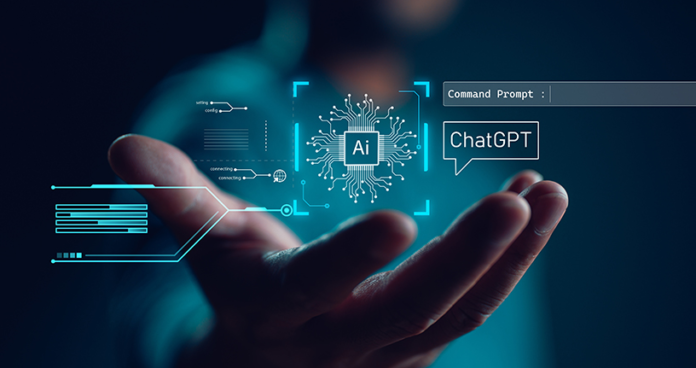As Artificial Intelligence (AI) continues to evolve and play a significant role across industries, its ethical implications are becoming a critical area of discussion. While AI holds the potential to transform areas like healthcare, education, and finance, it also raises complex ethical concerns. These challenges need to be carefully examined to ensure AI is developed and deployed in a way that benefits society while minimizing harm. Here are some of the key ethical challenges surrounding AI.
1. Bias in AI Systems
One of the most pressing ethical issues with AI is the risk of bias in the algorithms that drive these systems. AI models are trained on large datasets, and if these datasets contain biased information, the AI will replicate and potentially amplify those biases. This is especially problematic in sensitive areas like hiring, law enforcement, and lending, where biased AI can lead to unfair treatment of individuals based on factors such as race, gender, or socioeconomic status.
For example, AI-powered hiring tools have been criticized for favoring certain demographics over others based on biased training data. Similarly, AI systems used in criminal justice may perpetuate racial biases, leading to unjust outcomes for minority communities. Addressing bias in AI requires careful oversight, the use of diverse training data, and continuous auditing of AI systems.
2. Privacy and Surveillance Concerns
AI’s ability to process vast amounts of personal data raises significant privacy concerns. AI systems are often used in surveillance technologies, facial recognition, and social media platforms, enabling governments and corporations to monitor individuals’ behaviors and actions. This level of surveillance, especially without proper regulation, can lead to a violation of privacy rights and create a surveillance state where personal freedoms are compromised.
Facial recognition technology, in particular, has sparked heated debates due to its potential for misuse. For example, governments could use it to track political dissidents or marginalized communities, leading to the erosion of civil liberties. To ensure privacy is protected, it is essential to establish strict guidelines for how AI systems collect, store, and use personal data.
3. Accountability and Transparency
AI systems often operate as “black boxes,” meaning that their decision-making processes are not easily understood by humans, even by the developers who built them. This lack of transparency raises ethical concerns, particularly when AI systems are used in areas such as healthcare, finance, or law, where the outcomes of AI-driven decisions can have life-altering consequences.
When an AI system makes a mistake or delivers an unfair result, it is difficult to determine who is accountable— the AI system, the developers, or the organization using the technology. To address this, AI systems must be designed with transparency in mind, allowing stakeholders to understand how decisions are made. Additionally, there must be clear lines of accountability to ensure that when AI systems fail, responsibility can be assigned, and appropriate actions taken.
4. Job Displacement and Economic Inequality
The automation capabilities of AI raise concerns about job displacement, particularly in sectors where routine tasks can be easily automated. Jobs in manufacturing, retail, transportation, and even professional sectors like accounting and law are increasingly being automated by AI-powered systems, potentially leading to significant job losses. While AI has the potential to create new jobs, the transition could disproportionately affect low-income workers and widen the gap between rich and poor.
Governments and businesses need to develop strategies to mitigate the economic impacts of AI-driven automation. This includes investing in retraining programs, promoting education in AI-related fields, and ensuring that the economic benefits of AI are shared equitably across society.
5. Ethical Use of AI in Warfare
AI is being integrated into military technologies, leading to the development of autonomous weapons systems capable of making decisions without human intervention. This raises serious ethical questions about the use of AI in warfare, as autonomous weapons could potentially be used to make life-or-death decisions without human oversight.
The concern is that AI-powered weapons may not be able to distinguish between combatants and civilians, leading to unintended casualties and violations of international law. Additionally, the deployment of AI in warfare could trigger an arms race, where countries compete to develop more advanced autonomous weapons. Ensuring that AI is used ethically in warfare requires international cooperation and the establishment of clear regulations to prevent misuse.
6. Ethical AI Development and Governance
As AI becomes more pervasive, the ethical responsibility of those developing and deploying AI systems grows. Tech companies and developers must consider the societal impact of their AI technologies and prioritize ethical decision-making in their design processes. This includes adhering to ethical AI principles, such as fairness, accountability, transparency, and inclusivity.
Governments and regulatory bodies also play a crucial role in governing the development and use of AI. Developing comprehensive AI regulations, ethical guidelines, and frameworks will help ensure that AI is used in ways that align with societal values and protect the public from harm.
7. The Moral Status of AI
As AI systems become more advanced, questions about the moral status of AI are emerging. For example, should highly intelligent AI systems have rights or be treated with certain ethical considerations? While this may seem like a far-off issue, it becomes relevant as AI systems develop greater autonomy and capabilities that mimic human intelligence.
Additionally, as AI becomes more integrated into everyday life, there are concerns about how humans treat AI systems, particularly robots or AI with anthropomorphic features. While AI systems do not have consciousness, the ethical treatment of these systems could have broader implications for human behavior and societal norms.
AI holds tremendous potential for advancing human progress, but it also presents significant ethical challenges that cannot be ignored. As AI becomes more integrated into our daily lives, addressing issues such as bias, privacy, transparency, and accountability will be critical to ensuring that AI is developed and used responsibly. Navigating these ethical challenges requires a collaborative effort between governments, tech companies, and society to ensure AI benefits humanity as a whole, without compromising fundamental ethical principles.






